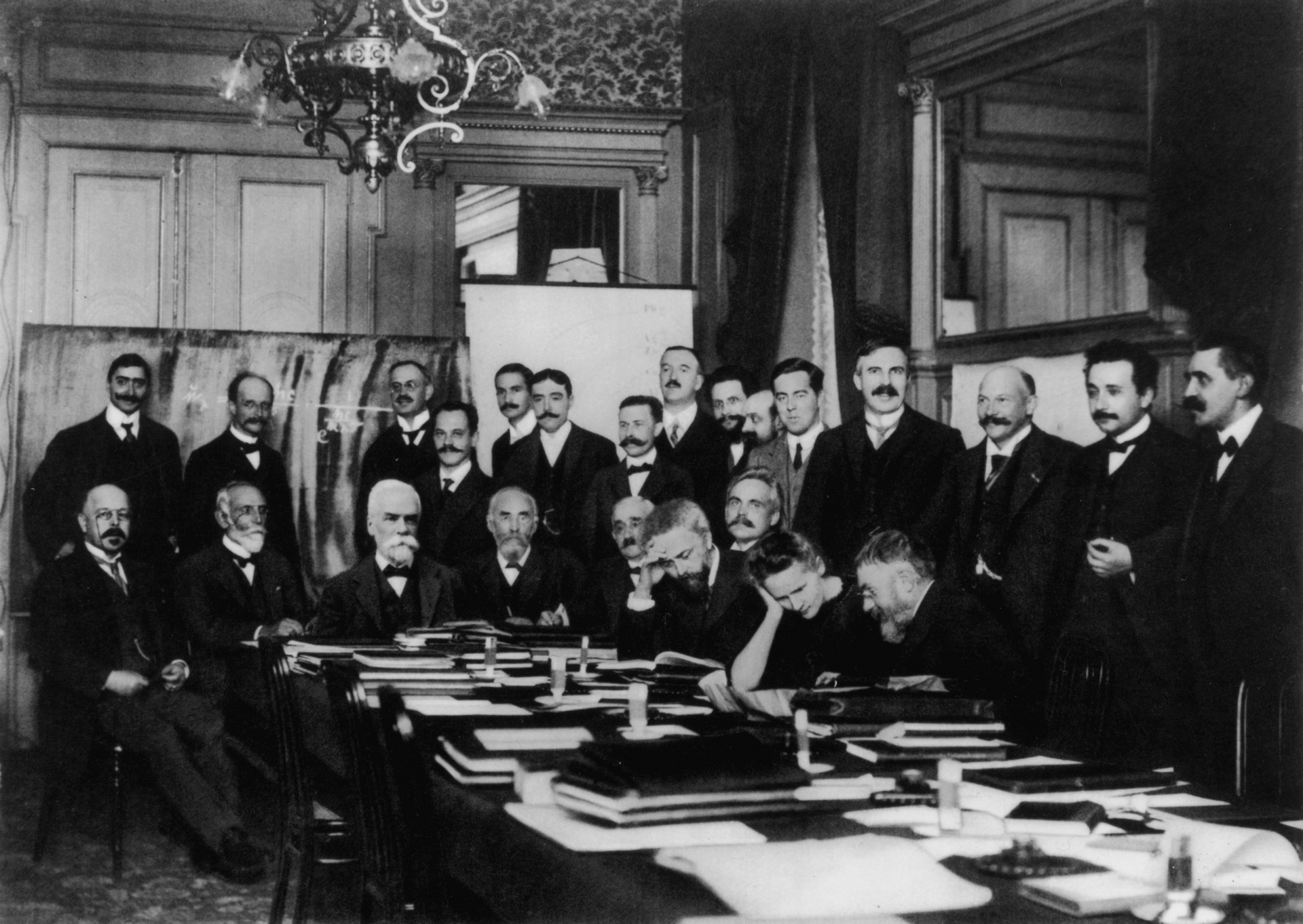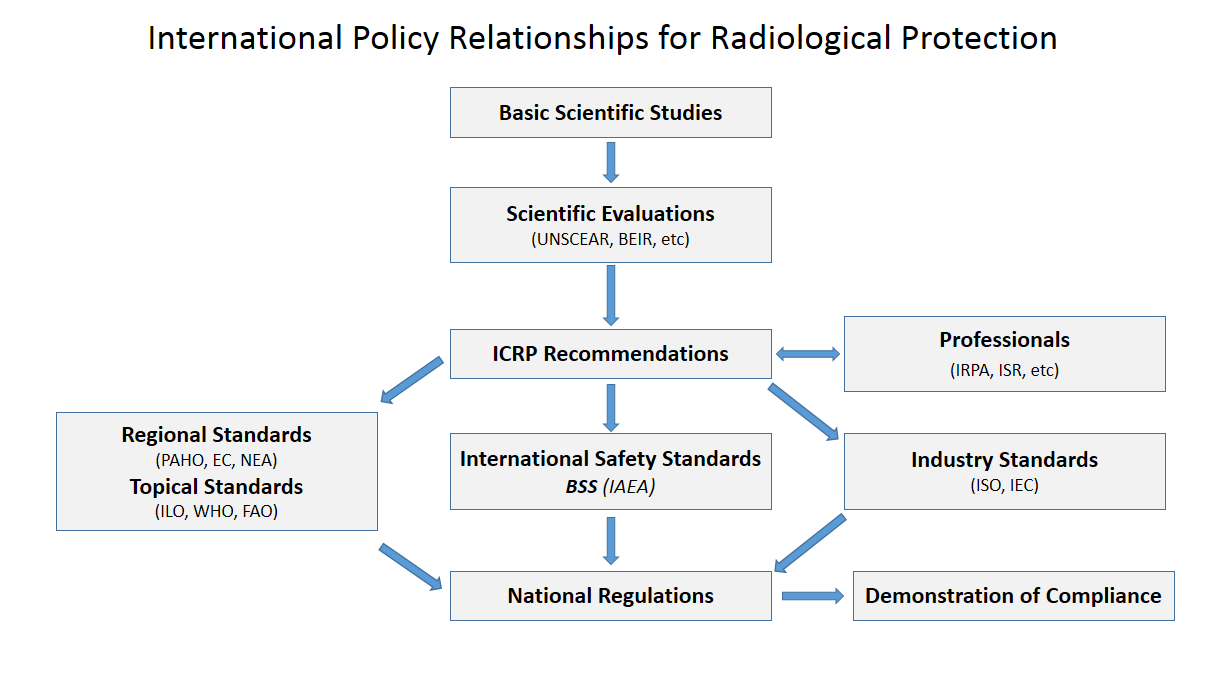|
Jacques Errera
Jacques Errera (25 September 1896 – 30 March 1977) was a Belgian physicochemist, specialized in the molecular constitution of matter.Errera J, Hirshberg Y, Potentiometric analysis of pure animal proteins, Biochem. J. (1933) 027 (764–770) During the 1930s he worked at the Free University of Brussels (ULB), and participated in the Solvay Conference of 1933. In 1938 he was awarded the Francqui Prize in Exact Sciences. Shortly after the first atomic bombs were used in 1945, he authored an optimistic article about the peaceful future potential of atomic energy. After WW2, Errera represented Belgium at both the United Nations Atomic Energy Commission and the International Atomic Energy Agency The International Atomic Energy Agency (IAEA) is an intergovernmental organization that seeks to promote the peaceful use of nuclear energy and to inhibit its use for any military purpose, including nuclear weapons. It was established in 1957 .... He was the son of Isabelle Errera. ... [...More Info...] [...Related Items...] OR: [Wikipedia] [Google] [Baidu] |
Jacques Errera Solvay1933
Ancient and noble French family names, Jacques, Jacq, or James are believed to originate from the Middle Ages in the historic northwest Brittany region in France, and have since spread around the world over the centuries. To date, there are over one hundred identified noble families related to the surname by the Nobility & Gentry of Great Britain & Ireland. Origins The origin of this surname ultimately originates from the Latin, Jacobus which belongs to an unknown progenitor. Jacobus comes from the Hebrew name, Yaakov, which translates as "one who follows" or "to follow after". Ancient history A French knight returning from the Crusades in the Holy Lands probably adopted the surname from "Saint Jacques" (or "James the Greater"). James the Greater was one of Jesus' Twelve Apostles, and is believed to be the first martyred apostle. Being endowed with this surname was an honor at the time and it is likely that the Church allowed it because of acts during the Crusades. Indeed, ... [...More Info...] [...Related Items...] OR: [Wikipedia] [Google] [Baidu] |
Belgium
Belgium, ; french: Belgique ; german: Belgien officially the Kingdom of Belgium, is a country in Northwestern Europe. The country is bordered by the Netherlands to the north, Germany to the east, Luxembourg to the southeast, France to the southwest, and the North Sea to the northwest. It covers an area of and has a population of more than 11.5 million, making it the 22nd most densely populated country in the world and the 6th most densely populated country in Europe, with a density of . Belgium is part of an area known as the Low Countries, historically a somewhat larger region than the Benelux group of states, as it also included parts of northern France. The capital and largest city is Brussels; other major cities are Antwerp, Ghent, Charleroi, Liège, Bruges, Namur, and Leuven. Belgium is a sovereign state and a federal constitutional monarchy with a parliamentary system. Its institutional organization is complex and is structured on both regional ... [...More Info...] [...Related Items...] OR: [Wikipedia] [Google] [Baidu] |
Solvay Conference
The Solvay Conferences (french: Conseils Solvay) have been devoted to outstanding preeminent open problems in both physics and chemistry. They began with the historic invitation-only 1911 Solvay Conference on Physics, considered a turning point in the world of physics, and continue to the present day. Following the initial success of 1911, they have since been organised by the International Solvay Institutes for Physics and Chemistry, founded by the Belgian industrialist Ernest Solvay in 1912 and 1913, and located in Brussels. The institutes coordinate conferences, workshops, seminars, and colloquia. Recent Solvay Conferences usually go through a three year cycle: the Solvay Conference on Physics, followed by a gap year, followed by the Solvay Conference on Chemistry. Notable Solvay conferences First conference Hendrik Lorentz was chairman of the first Solvay Conference on Physics, held in Brussels from 30 October to 3 November 1911. The subject was ''Radiation and the Quan ... [...More Info...] [...Related Items...] OR: [Wikipedia] [Google] [Baidu] |
Francqui Prize
The Francqui Prize is a prestigious Belgian scholarly and scientific prize named after Émile Francqui. Normally annually since 1933, the Francqui Foundation awards it in recognition of the achievements of a scholar or scientist, who at the start of the year still had to be under 50. It currently represents a sum of 250,000 Euros and is awarded in the following three-year rotation of subjects: exact sciences, social sciences or humanities, and biological or medical sciences. Proposed candidates must be associated with a Belgian academic institution, in the case of a foreigner for at least ten years. The recipient is selected by a jury of eight to 14 members, none of whom may be associated with a Belgian institution. The members of the international jury vote by secret letter, and the laureate they recommend must be supported by two thirds of the assembled directors of the foundation (with a quorum of 12) or no prize would be awarded that year. The prize is meant to encourage the ... [...More Info...] [...Related Items...] OR: [Wikipedia] [Google] [Baidu] |
United Nations Atomic Energy Commission
The United Nations Atomic Energy Commission (UNAEC) was founded on 24 January 1946 by the very first resolution of the United Nations General Assembly "to deal with the problems raised by the discovery of atomic energy." The General Assembly asked the Commission to "make specific proposals: (a) for extending between all nations the exchange of basic scientific information for peaceful ends; (b) for control of atomic energy to the extent necessary to ensure its use only for peaceful purposes; (c) for the elimination from national armaments of atomic weapons and of all other major weapons adaptable to mass destruction; (d) for effective safeguards by way of inspection and other means to protect complying States against the hazards of violations and evasions." On 14 December 1946, the General Assembly passed a follow-up resolution urging an expeditious completion of the report by the Commission as well as its consideration by the United Nations Security Council. The Security Council r ... [...More Info...] [...Related Items...] OR: [Wikipedia] [Google] [Baidu] |
International Atomic Energy Agency
The International Atomic Energy Agency (IAEA) is an intergovernmental organization that seeks to promote the peaceful use of nuclear energy and to inhibit its use for any military purpose, including nuclear weapons. It was established in 1957 as an autonomous organization within the United Nations system; though governed by its own founding treaty, the organization reports to both the General Assembly and the Security Council of the United Nations, and is headquartered at the UN Office at Vienna, Austria. The IAEA was created in response to growing international concern toward nuclear weapons, especially amid rising tensions between the foremost nuclear powers, the United States and the Soviet Union. U.S. President Dwight D. Eisenhower's " Atoms for Peace" speech, which called for the creation of an international organization to monitor the global proliferation of nuclear resources and technology, is credited with catalyzing the formation of the IAEA, whose treaty came into ... [...More Info...] [...Related Items...] OR: [Wikipedia] [Google] [Baidu] |
Isabelle Errera
Isabella or Isabelle Alice Errera (née Goldschmidt; 5 April 1869 - 23 June 1929) was a Belgian art historian specializing in textiles. Life Isabelle Goldschmidt was born in Florence in 1869. Her parents were Isaac "John" Goldschmidt and Sophie Franchetti. Her uncle Giulio Franchetti was a textile collector, whose collection is partly kept at the Bargello in Florence and was the subject of an exhibition at the Palazzo Pretorio in Prato in 1981. Another uncle was politician and writer Baron Leopoldo Franchetti. In 1870, her sister Élena Goldschmidt-Franchetti was born in Florence as well. She would become famous as the writer Jean Dornis. Isabelle married the lawyer Paul-Joseph Errera (1860-1922), brother of botanist Léo Errera, in 1890 in Paris. They moved to the Hotel Errera in the Rue Royale, Brussels, where Isabelle Errera worked from 1897 on as the conservator for the textiles department of the Royal Museums of Fine Arts of Belgium, and Paul Errera was a professor at ... [...More Info...] [...Related Items...] OR: [Wikipedia] [Google] [Baidu] |
Academic Staff Of The Free University Of Brussels (1834–1969)
An academy (Attic Greek: Ἀκαδήμεια; Koine Greek Ἀκαδημία) is an institution of secondary or tertiary higher learning (and generally also research or honorary membership). The name traces back to Plato's school of philosophy, founded approximately 385 BC at Akademia, a sanctuary of Athena, the goddess of wisdom and skill, north of Athens, Greece. Etymology The word comes from the ''Academy'' in ancient Greece, which derives from the Athenian hero, ''Akademos''. Outside the city walls of Athens, the gymnasium was made famous by Plato as a center of learning. The sacred space, dedicated to the goddess of wisdom, Athena, had formerly been an olive grove, hence the expression "the groves of Academe". In these gardens, the philosopher Plato conversed with followers. Plato developed his sessions into a method of teaching philosophy and in 387 BC, established what is known today as the Old Academy. By extension, ''academia'' has come to mean the accumulation, dev ... [...More Info...] [...Related Items...] OR: [Wikipedia] [Google] [Baidu] |
Belgian Physical Chemists
{{Disambiguation ...
Belgian may refer to: * Something of, or related to, Belgium * Belgians, people from Belgium or of Belgian descent * Languages of Belgium, languages spoken in Belgium, such as Dutch, French, and German *Ancient Belgian language, an extinct language formerly spoken in Gallia Belgica *Belgian Dutch or Flemish, a variant of Dutch *Belgian French, a variant of French *Belgian horse (other), various breeds of horse *Belgian waffle, in culinary contexts * SS ''Belgian'', a cargo ship in service with F Leyland & Co Ltd from 1919 to 1934 *''The Belgian'', a 1917 American silent film See also * *Belgica (other) *Belgic (other) Belgic may refer to: * an adjective referring to the Belgae, an ancient confederation of tribes * a rarer adjective referring to the Low Countries or to Belgium * , several ships with the name * Belgic ware, a type of pottery * Belgic Confession, a ... [...More Info...] [...Related Items...] OR: [Wikipedia] [Google] [Baidu] |
1896 Births
Events January–March * January 2 – The Jameson Raid comes to an end, as Jameson surrenders to the Boers. * January 4 – Utah is admitted as the 45th U.S. state. * January 5 – An Austrian newspaper reports that Wilhelm Röntgen has discovered a type of radiation (later known as X-rays). * January 6 – Cecil Rhodes is forced to resign as Prime Minister of the Cape of Good Hope, for his involvement in the Jameson Raid. * January 7 – American culinary expert Fannie Farmer publishes her first cookbook. * January 12 – H. L. Smith takes the first X-ray photograph. * January 17 – Fourth Anglo-Ashanti War: British redcoats enter the Ashanti capital, Kumasi, and Asantehene Agyeman Prempeh I is deposed. * January 18 – The X-ray machine is exhibited for the first time. * January 28 – Walter Arnold, of East Peckham, Kent, England, is fined 1 shilling for speeding at (exceeding the contemporary speed limit of , the first spee ... [...More Info...] [...Related Items...] OR: [Wikipedia] [Google] [Baidu] |




.jpg)